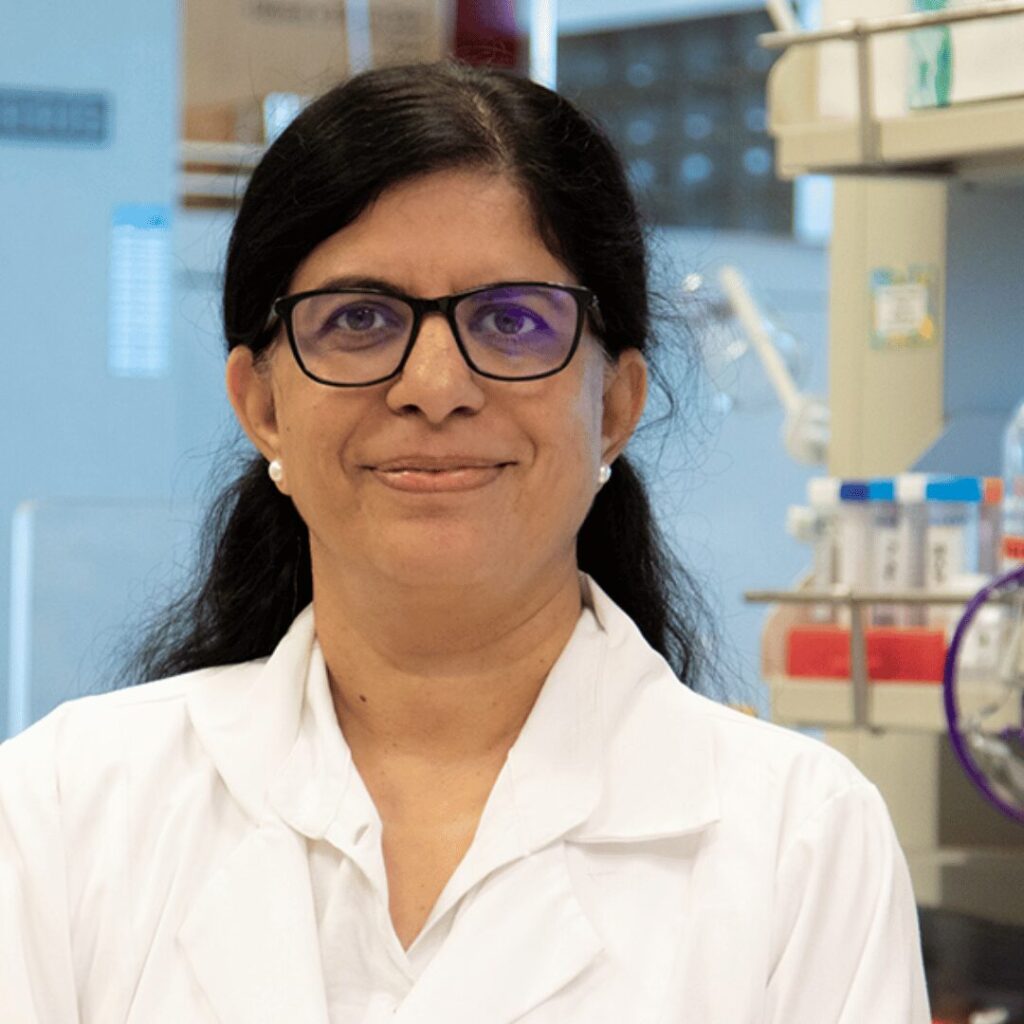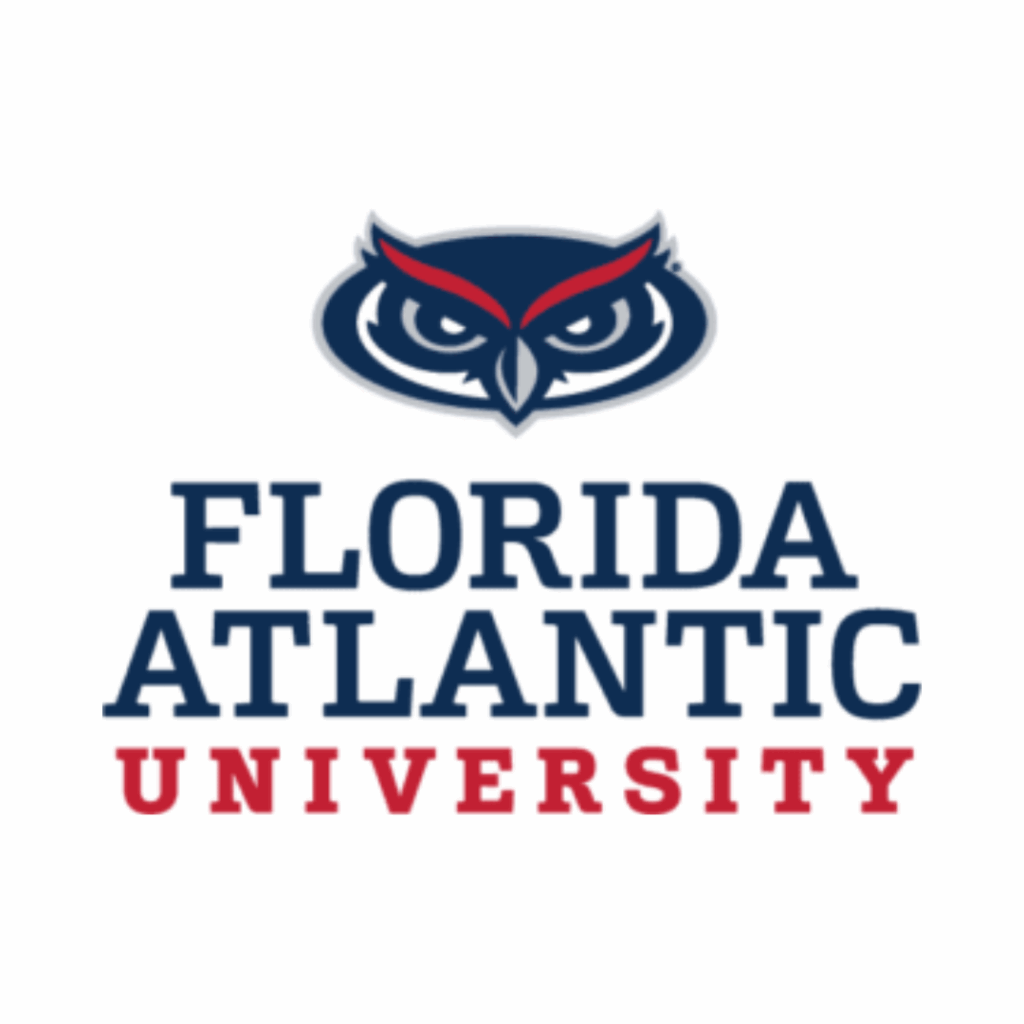 Florida Atlantic University’s Center for Molecular Biology and Biotechnology (CMBB) held it’s first-ever BioTech Bridge Hackathon last weekend with over 100 students, educators, and industry professionals in attendance. The BioTech Bridge program connects science and other applicable majors with industry. offering certificate programs that prepare versatile graduates for successful careers in biotech and pharmaceutical industries.
Florida Atlantic University’s Center for Molecular Biology and Biotechnology (CMBB) held it’s first-ever BioTech Bridge Hackathon last weekend with over 100 students, educators, and industry professionals in attendance. The BioTech Bridge program connects science and other applicable majors with industry. offering certificate programs that prepare versatile graduates for successful careers in biotech and pharmaceutical industries.
Florida’s Bioscience industry is large and growing with employment increasing by 11% since 2018, matchng the national growth rate and reaching nearly 107,000 jobs in 2021. The average wage for workers empoyed in the bioscience industry is $99,000. That is 85% higher than average wages of workers employed in any other private sector. Once you apply interdiscilnary skills such as data science, bioinformatics, and biotechnology management, wages can increase significantly.
The inaugural theme, “Beat the Clock: Innovating for a Longer, Healthier Life,” brought interdisciplinary teams together to create innovative solutions that sought to answer the question: How do we extend health span and slow the effects of aging? All Florida Atlantic undergraduate and graduate students awere invited to participate, regardless of their major. The hackathon brought out students from biology, mathematics, chemistry, computer science & engineering, neiroscience and more.
Dr. Shailaja Allani, the Director of the Center for Molecular Biology and Biotechnology (CMBB), shared, “The inaugural CMBB Biotech Bridge- Biotech Hackathon has showcased the power of curiosity and problem-solving driven by the spirit of teamwork and interdisciplinary collaboration to create solutions for a longer, healthier life. Unlike traditional tech hackathons, a biotech hackathon uniquely empowers biology and chemistry students to engage, innovate, and contribute their expertise. Through this event, it was evident that the interdisciplinary teams were the most innovative with effective solutions.”
During the two-day event, industry representative participation was critical, as it helped address real-world problems while providing valuable guidance and insight. A variety of expert academic and industry leaders were available to the teams and provided guidance during ideation, technical support, and even helping prepare for their pitches. At the conclusion of the Hackathon, teams presented their projects to a group of judges which held backgrounds in the biosceinces, computer science and engineering, entrepreneurship and investments, and engineering and robotics.
Hananel Hazan, Ph.D., an interdisciplinary computer scientist at Tufts University, delivered the event’s keynote speech. Hazan specializes in biologically inspired computing, neurocomputation and machine learning. His work bridges computer science and neurobiology to uncover the fundamental principles of cognition and computation. Florida Atlantic University’s Dean of the Charles E. Schmidt College of Science, Valery Forbes, also addressed the stuents and attended their pitch presentations. Dr. Allani and Jessica Hibbered, CMBB Program Coordinator spared nothing making this year’s first hackathon a success bringing in parteners such as South Florida Tech Hub and Ekkolápto.
This year’s inaugural BioTech Bridge Hackathon winners were:
Alzheimer’s begins damaging neurons decades before symptoms appear, yet current diagnostic methods are costly, invasive, or unreliable, leaving a critical need for earlier detection. The team’s solution, NeuroNexus, leverages AI and Multi-Omics datasets to identify novel biomarkers, validated through brain-on-a-chip models. This real-time AI feedback loop continuously refines biomarker predictions, enabling earlier and more precise diagnostics. By integrating cutting-edge technology, NeuroNexus aims to make Alzheimer’s detection more accessible and improve early intervention outcomes.
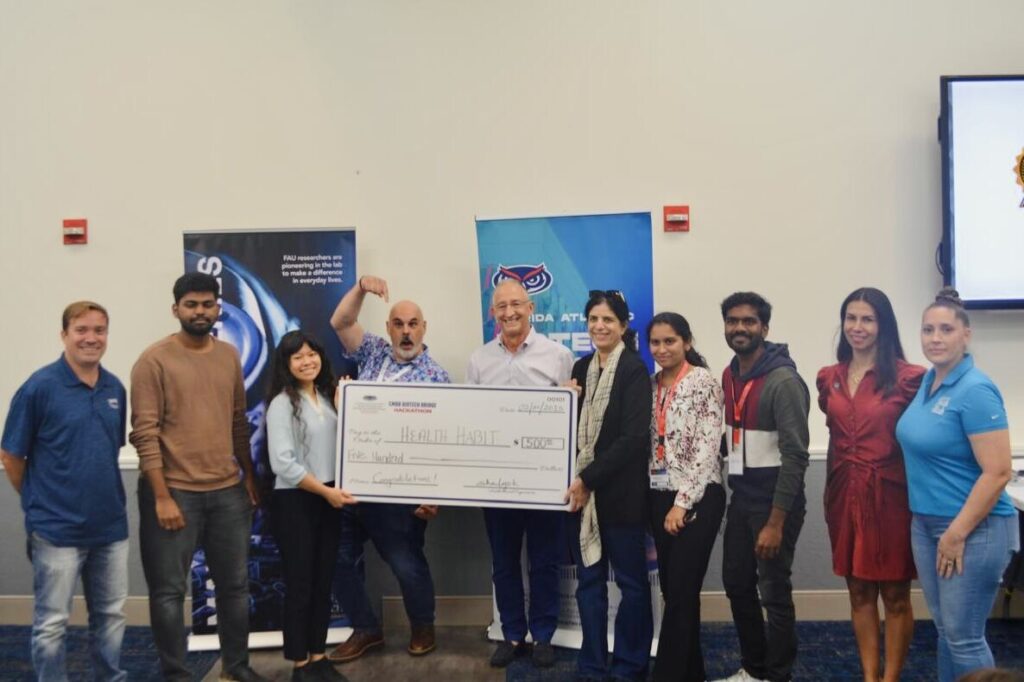 2nd Place | Team “Health Habit”
2nd Place | Team “Health Habit”
Medication adherence and chronic disease management remain critical healthcare challenges, often leading to complications and frequent hospital readmissions. To address this, the team developed an AI health assistant during a 2-day hackathon using Next.js, LLMs, and Tailwind, providing personalized nutrition, exercise, and therapy recommendations based on a 70-30 rule (70% user history, 30% family/genetics). Targeting health-conscious individuals and frequently readmitted patients, our solution aims to improve treatment outcomes through proactive lifestyle support. Future applications include B2C integration with wearables like Alexa and Fitbit and B2B collaborations with hospitals while ensuring HIPAA compliance.
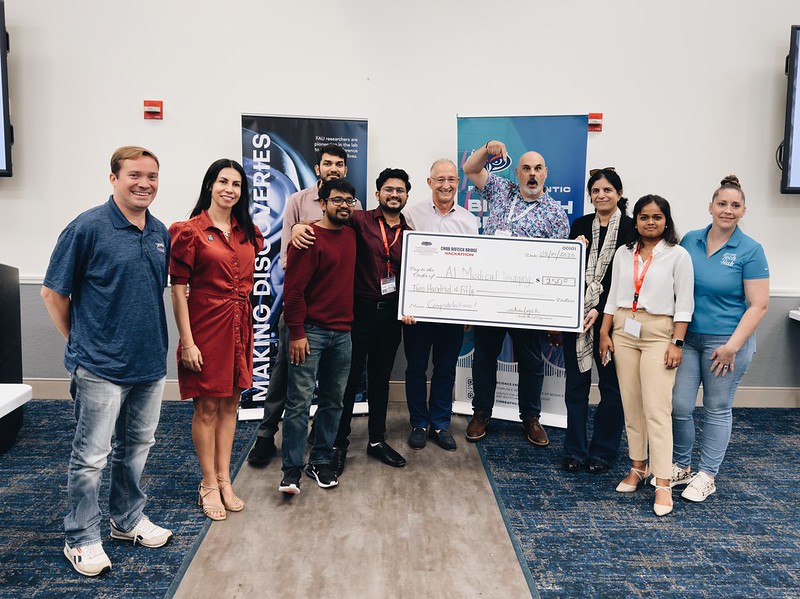 3rd Place | Team “AI Medical Imaging”
3rd Place | Team “AI Medical Imaging”
Accurate weight and height measurement is essential in emergency medicine for precise medication dosing and treatment decisions, yet traditional estimation methods are often unreliable, particularly in high-pressure or resource-limited settings. This study explores advancements in body weight estimation, focusing on modern, contactless technologies such as 3D cameras and AI-powered computational models. By assessing their accuracy, reliability, and practical applicability, we aim to determine their effectiveness across various fields, including healthcare, forensic sciences, and emergency response. The team’s findings highlight the potential of these innovative approaches to improve measurement precision and enhance patient outcomes in critical situations.
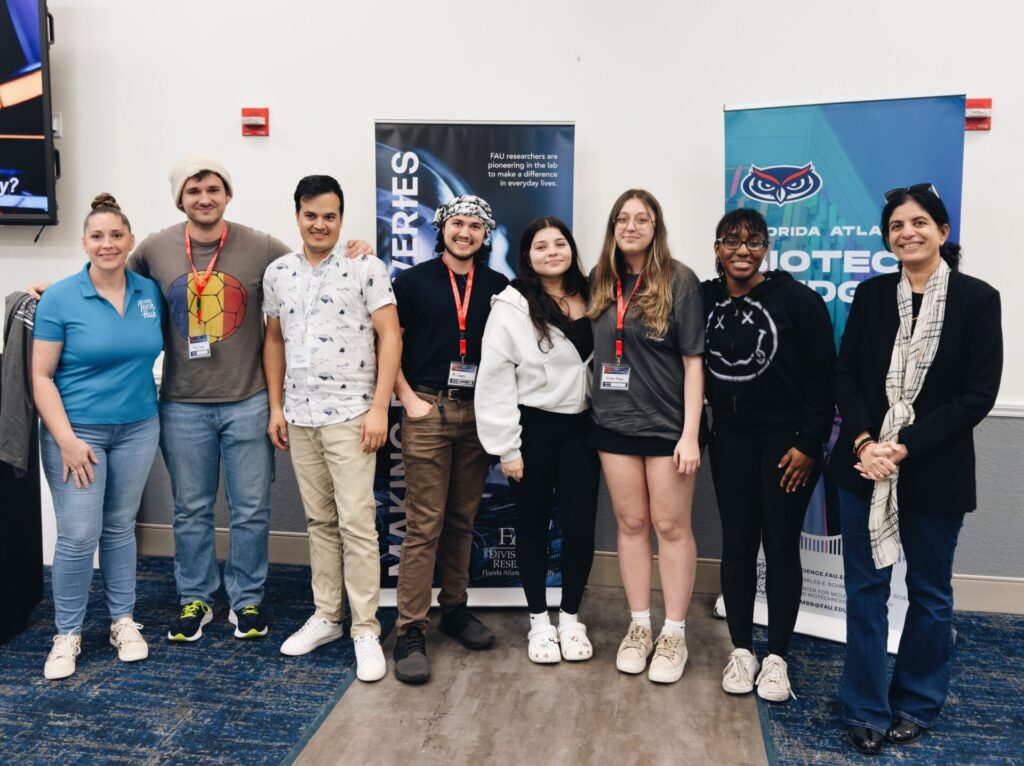 Honarable Mention | Team “Help”
Honarable Mention | Team “Help”
As individuals age, subtle biological changes occur that can be detected through scent, yet traditional diagnostic methods often fail to identify these early indicators in a non-invasive and timely manner. Service animals, known for their highly sensitive olfactory abilities, have demonstrated potential in detecting age-related factors such as metabolic changes, neurological decline, and disease biomarkers. By training service animals to recognize these scent-based aging indicators, we can develop an innovative, non-invasive screening method for early detection of age-related conditions. This approach not only enhances preventative healthcare but also paves the way for integrating AI and scent-detection technology to further refine and scale these capabilities.
CLICK HERE for event photos. 📸
For more information on FAU Biotech Bridge, visit www.fau.edu/science/cmbb/ or contact Jessica Hibberd, Development Coordinator, at 561-799-8783 or jlewis92@fau.edu


